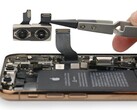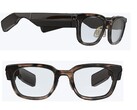It looks like the number of cancelled projects at Apple continues to mount under CEO Tim Cook. First it was the vaunted Apple Car, then the humiliating cancellation of the publicly-announced-before-it-was-ready AirPower charging mat. Now comes the news that Apple has killed its immediate plans for a set of long rumored AR wearable glasses. The report comes from Taiwanese publication DigiTimes which cites supply chain sources for the origins of the story.
According to its supply chain sources, Apple has stopped seeking components and orders for prototype AR headsets. This follows the departure from Apple of Avi Bar-Zeev around January or February this year. Bar-Zeev was a vaunted hire for Apple who left Microsoft's HoloLens team to head up Apple's AR glasses/headset development in 2016. Following his departure, the AR glasses team was disbanded in May with the project placed on indefinite hold. Cook has a habit of talking up the "mindblowing" tech Apple is working on but we have yet to see anything mindblowing from Apple in some time.
In the past, Cook has cited AR as a key area of interest for Apple in the past and it has been known for some time that the company was working on an AR wearable of some description. Microsoft's HoloLens has found applications with the military as well as in various CAD-based industries but is yet to make its way into the mainstream. Apple's solution was thought to be targeted at mainstream use, but it is within the realms of possibility that Apple couldn't get a combination of the price point, functionality and technology fit for purpose.
In related news, Samsung has filed a patent for a set of foldable AR glasses. The design looks slightly thicker than a regular pair of glasses, which makes sense as it would need to pack in a range of components into its arms. It shows a display embedded in the right lens that would activate automatically when the glasses are unfolded for use. Similarly, it would automatically switch off when folded. Interestingly, the patent description references the use of an ARM-based chip which suggests it could be quite powerful in terms of its capabilities.


















